This is Part 2 of a Textile Museum rug morning given by Ed Zimmerman and Michael Seidman on December 7, 2002. There is a Part 1 hereabout with which it would be best to start. Ed and Mike showed pieces from their own collections.
The next piece was also described as an Afshar bag face.
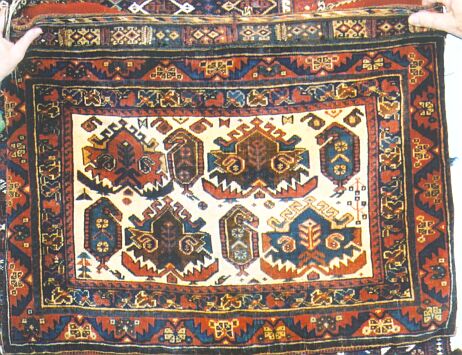
It has a nice white ground field and interesting designs everywhere in it.
The piece below is a fragment of Balouch kilim.
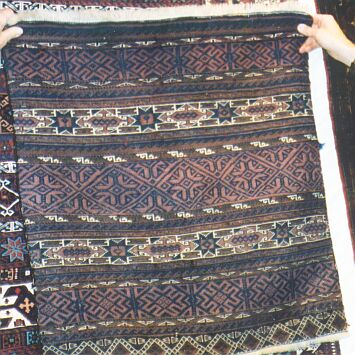
It reminded me of a larger piece that Joe Fell showed recently and that we will see in a salon next month. Lots of typical Balouch designs done at a high level of quality.
The piece below was described as a Qashqai bag face.
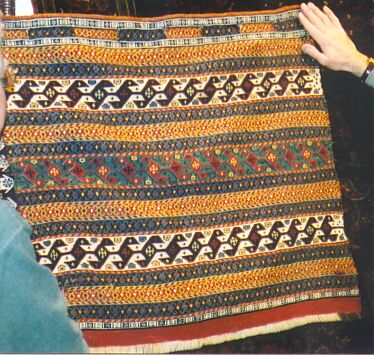
It has a wide and lighter than usual palette.
The piece below is another Afshar bag face, this one with stars.
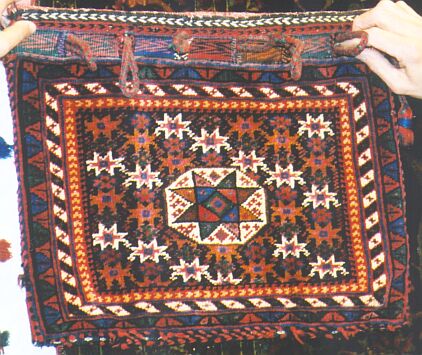
This was a complete bag and the back was very striking too.
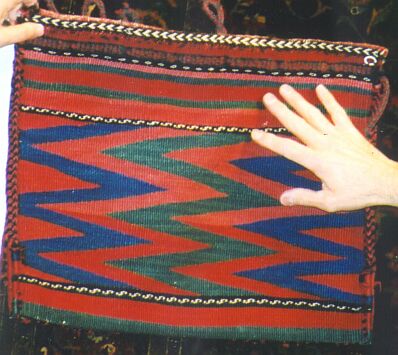
The piece below was the first of several Shahsevan pieces.
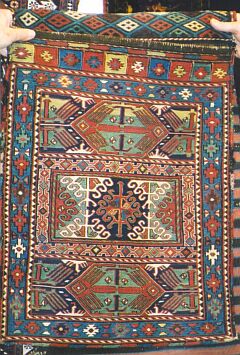
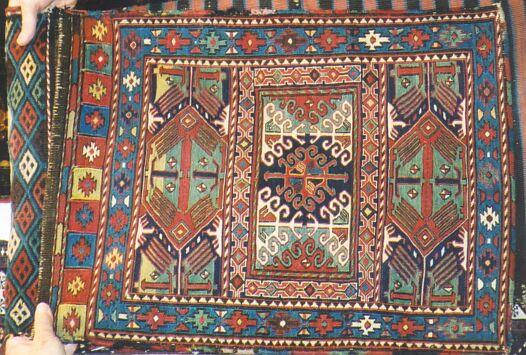
It is both very colorful and very precisely and nicely composed.
The next piece, also Shahsevan, was a complete “mafrash,” of the cargo bag type.
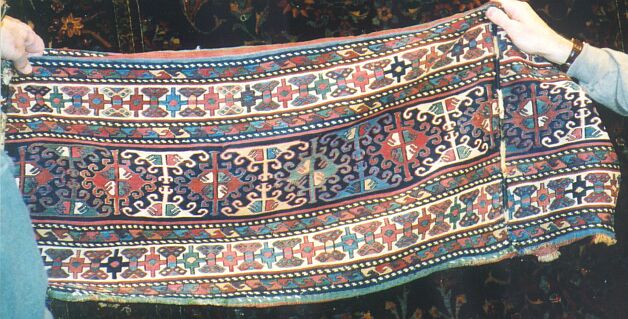
The last Shahsevan piece was another mafrash panel of seemingly simple but actually quite sophisticated design. Its graphic power illustrates what can be done with a fairly restricted color palette.
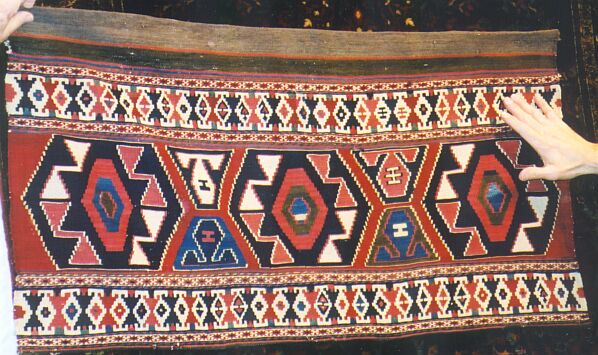
I especially like how the weaver used scale to make the field and the major and minor borders “work” effectively with one another without competition.
The colorful rug below was described as Kurdish.

It one of the group of Kurdish rugs that Michael Wendorf discussed recently here in salon 88. Here is that link:
http://www.turkotek.com/salon_00088/salon.html
The piece below is a very similar Kurdish bag face.
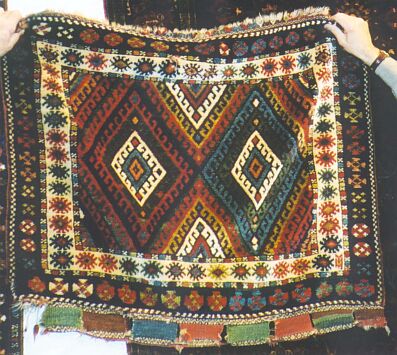
The unusual piece below was described as Anatolian Kurd. This is an old rug, but there is something quite modern-seeming to me about its design. Very abstracted.
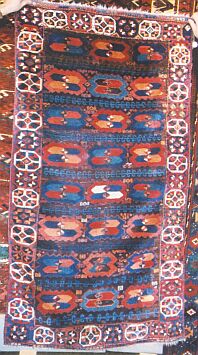
Here is a slightly closer look.
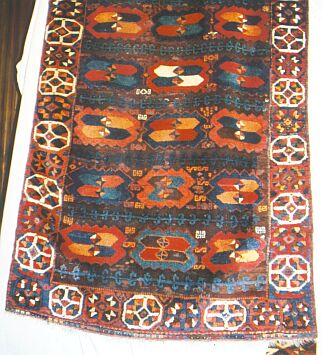
Michael said the long rug below was likely Varamin.
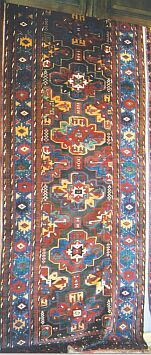
I said that there were some long rugs with these Turkmen-like gul forms that are called Kuchon Kurd. Michael said that color palette suggested Varamin to him.
The piece below is also Veramin, this time a bag face that also has gul-like design in its field.
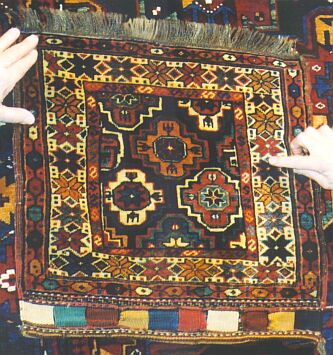
Next, we moved to a Tekke main carpet of Ed’s. Ed called it one of his “better” Tekke main carpet pieces, saying that he didn’t have one of the “best” ones.
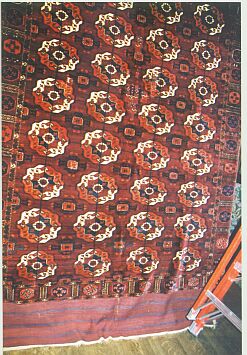
Ed called attention to the roundness of the major guls, the spaciousness of the design and the relative simplicity of the maid border.
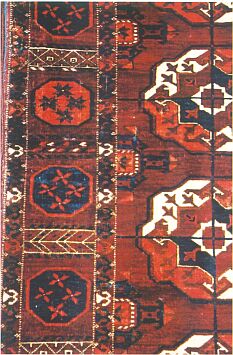
Notice that of the cartouches in the border with four stars, there are none in this rug, as is usual with other Tekkes, that have a white ground.
The last rug that Michael and Ed showed in their presentation was this Yomut main carpet of Ed’s.
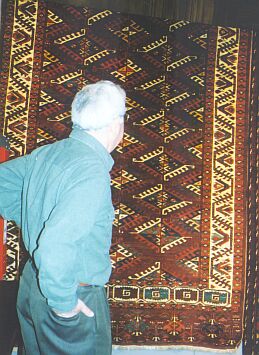
The overall picture above doesn’t let you see the color in this piece.
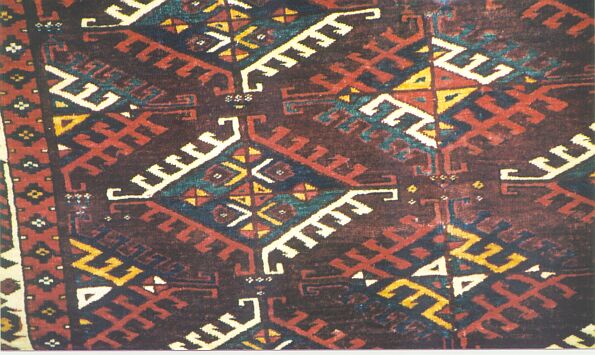
And the pile ends on this piece are reminiscent of those on the ends of the TM’s great “chuval gul” main carpet.
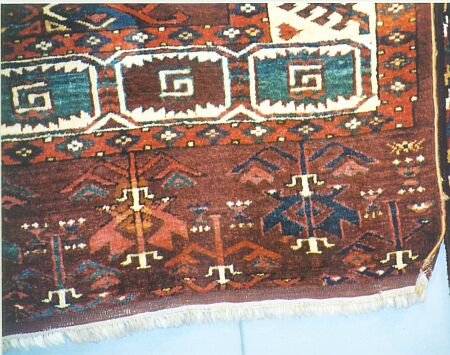
Those are curvilinear. These are old but more recent and the design has been done in a rectilinear mode.
Our thanks to Michael for an attribution listing and to both him and Ed for permission to put their nice rug morning up on Turkotek.
I think you’ll agree that the “new collectors” in the audience got a very good picture of what experienced collectors like and have.
Regards,
R. John Howe